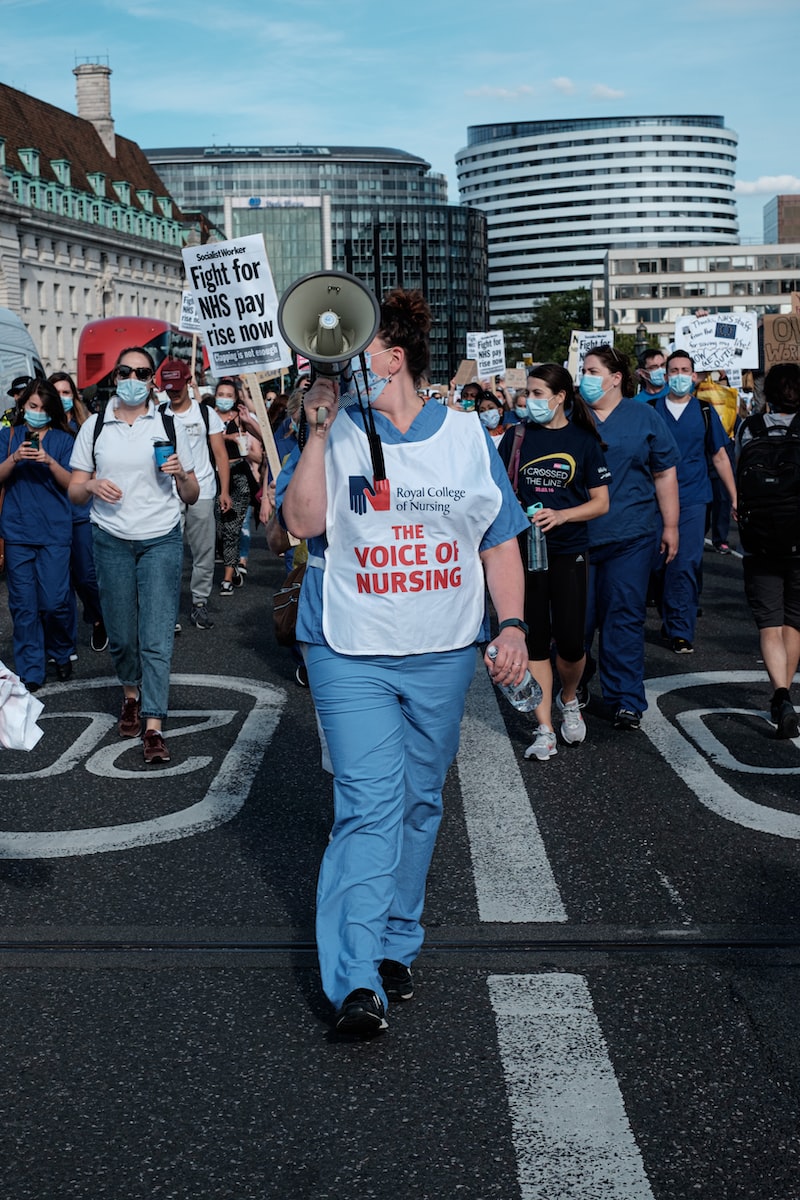Care workers pay leaves the majority of staff ‘on the brink of poverty’
Stripped of supplies and cash, the UK Prime Minister has been forced to face problems in the health sector and suggest improvements before it hits breaking point.
During an interview with Laura Kussenberg, Rishi Sunak was forced to face reality as the BBC’s journalist laid bare the conditions the NHS is facing this winter, stating serious improvements need to be implemented.
A severe issue the health sector is currently inundated with is the backlog of hospital beds that has been caused by delays in A&E and emergency departments. To help this, care providers are asking the government to double their fees to allow patients to be discharged from hospital and put into a care home.
Care England, which represents the largest private care home providers, claimed it wants the government to pay £1,500 a week per person, citing the need to pay care workers more and hire rehabilitation specialists.
Health Secretary, Steve Barclay, has promised an extra £250m will be distributed to the NHS to help them buy extra care beds in care homes, hospices, and hotels. The funding is separate to the £500m which was allocated to the social care sector as part of the autumn statement.
However, when Rishi Sunak was asked about how much of the £500m has been distributed in the interview held yesterday, he was unable to answer.
As well as flagging concerns about money needed to pay for extra equipment, Mr Sunak was also faced with the problem of care workers being extremely underpaid.
Asked if he could fix the pay gap in the sector, as staff earn below the average wage, Mr Sunak said: ‘There’s a range of different things to make sure people in social care do feel valued and part of that actually is giving them a sense of qualifications, professional training and development and a sense of career progression…it’s not just about how much people are paid.’

However, Hugh Alderwick, Director of Policy at the Health Foundation, laid emphasis on how the pay needs to change.
He said: ‘Social care workers – who are mostly women – play a vital role in society but are among the lowest paid workers in the UK, and experience shocking levels of poverty and deprivation.
‘We analysed data from 2017-2020 and found that over a quarter of residential care workers in the UK live in or on the brink of poverty. Around one in 10 experiences food insecurity and around one in 8 children of residential care workers is materially deprived.
‘This reflects political choices. Sustained underfunding of social care has contributed to unacceptable pay and conditions for staff and major workforce shortages. If government values people using and providing social care, it must act to tackle low pay and insecure employment conditions in the sector.’
In England, the average care worker is paid £9.50 an hour – below a McDonald’s crew member or an Amazon warehouse picker, and according to research undertaken by Skills for Care, the number of filled posts in the sector have dropped for the first time since records began.
In addition to being quizzed on the state of social care, Rishi Sunak revealed the government is now in talks with the Royal College of Nursing (RCN) to discuss a pay deal that will hopefully end strike action.
Described as a ‘chink of optimism’ by Pat Cullen, General Secretary of the RCN, the nursing union are confident they can reach a deal that exceeds the 4.75% increase nurses were already set to receive, however it was deemed ‘not enough’ to cushion the current cost-of-living crisis.
The government are set to hold a meeting with unions today to discuss further plans.
Photo by Ehimetalor Akhere Unuabona and Adi Ulici

















